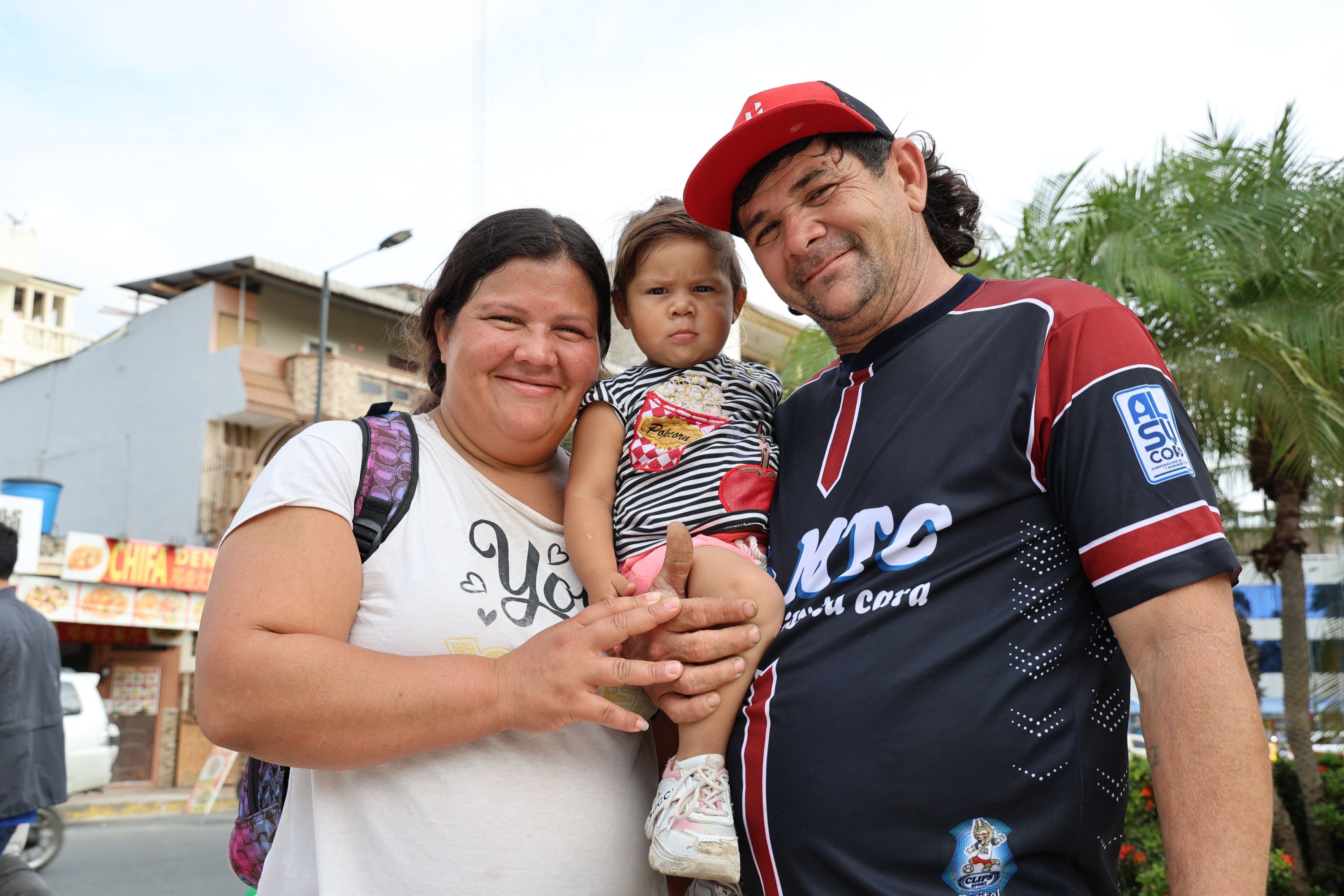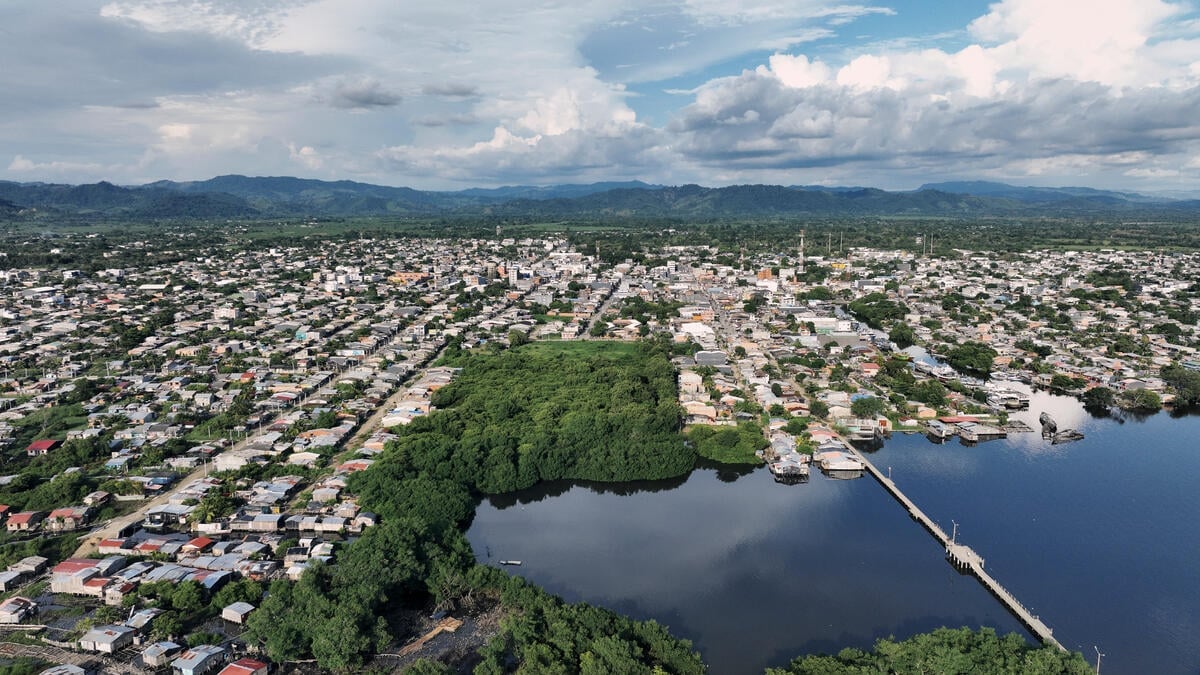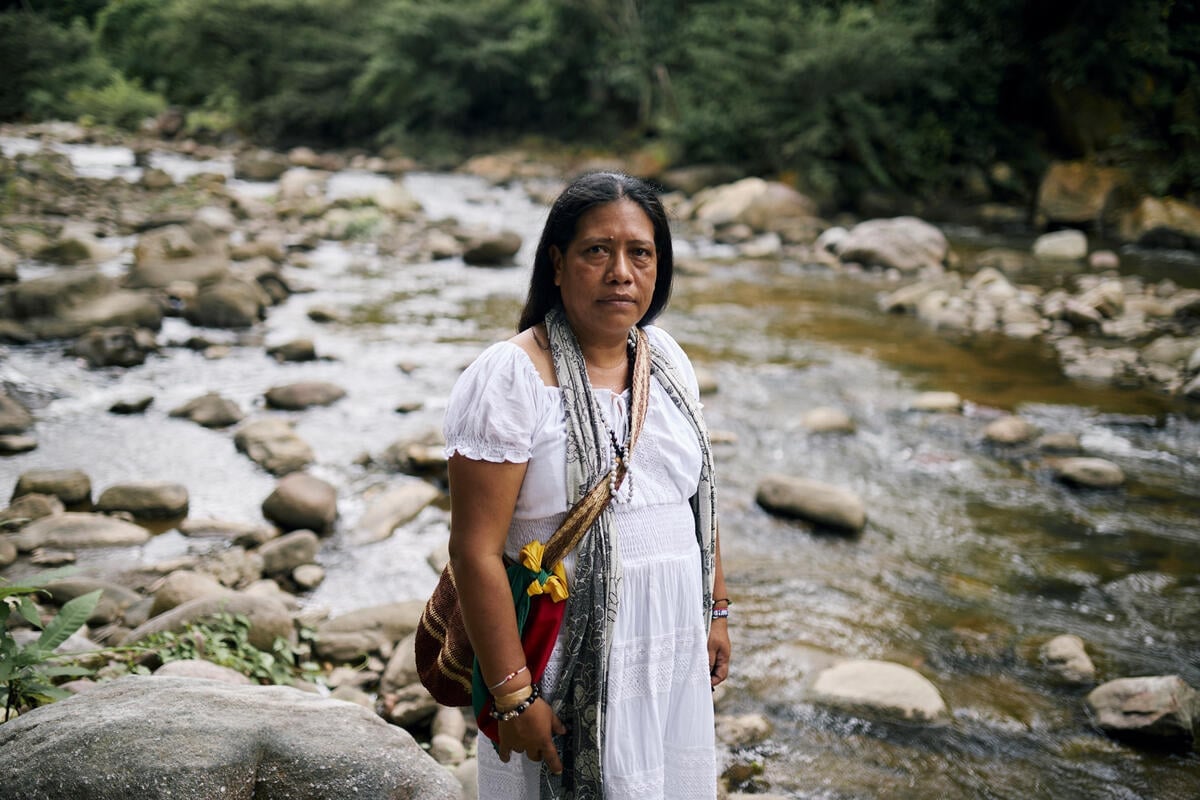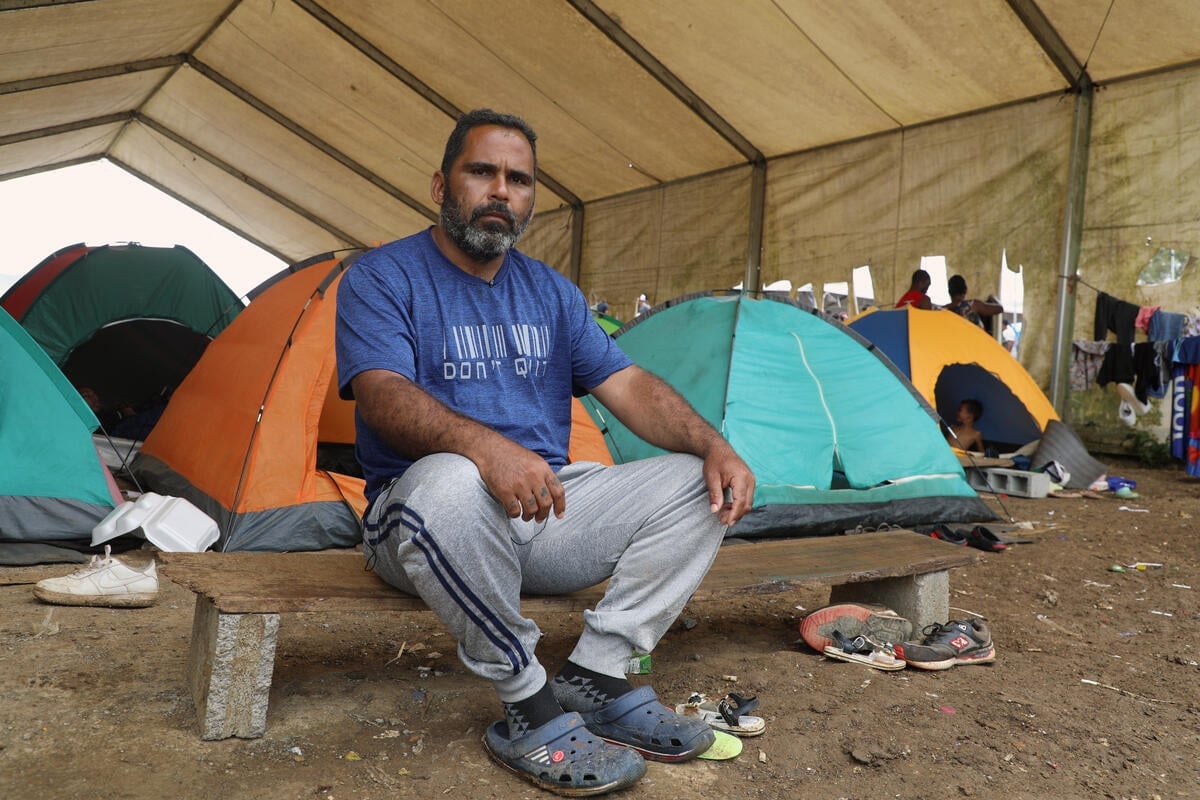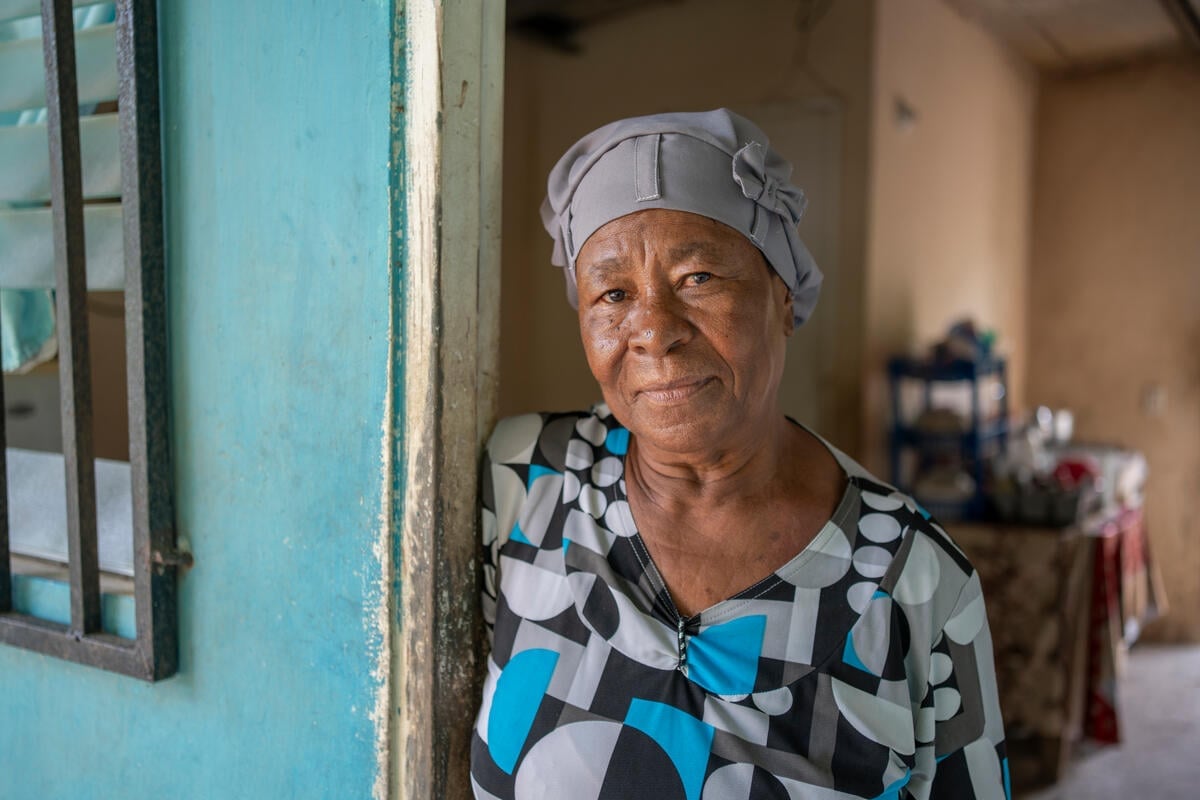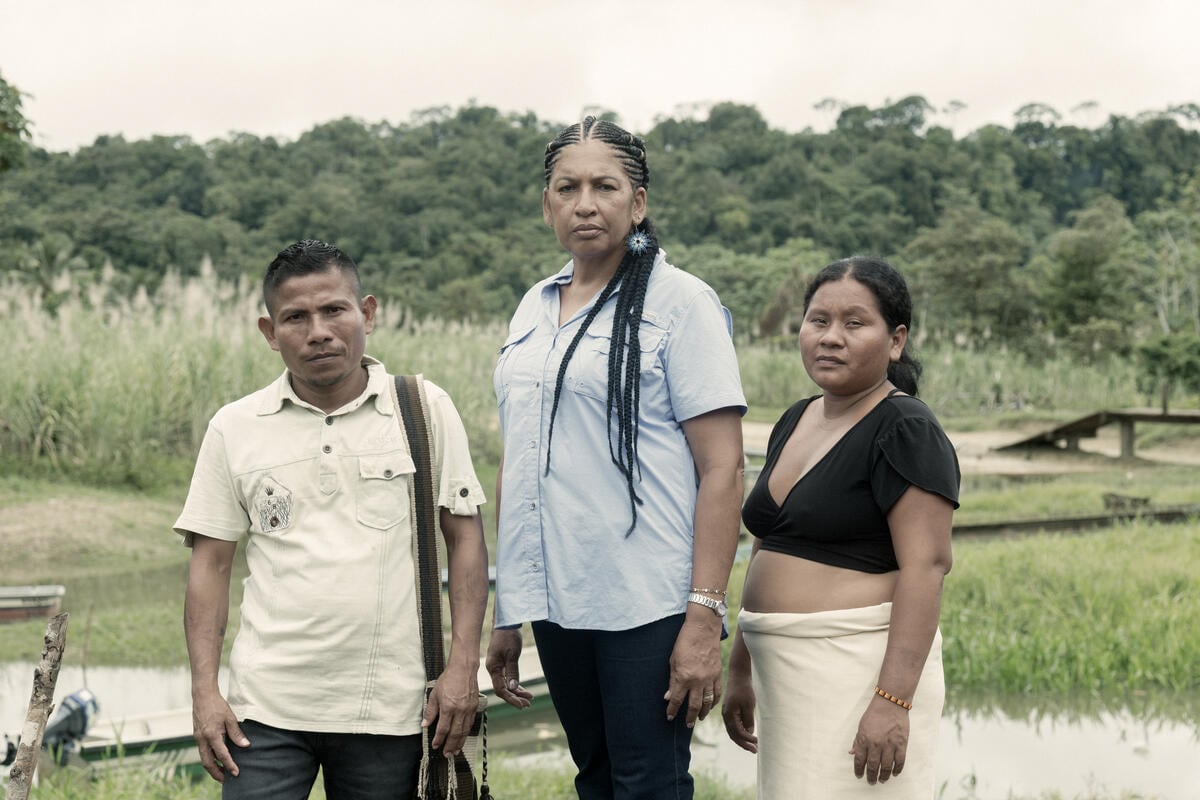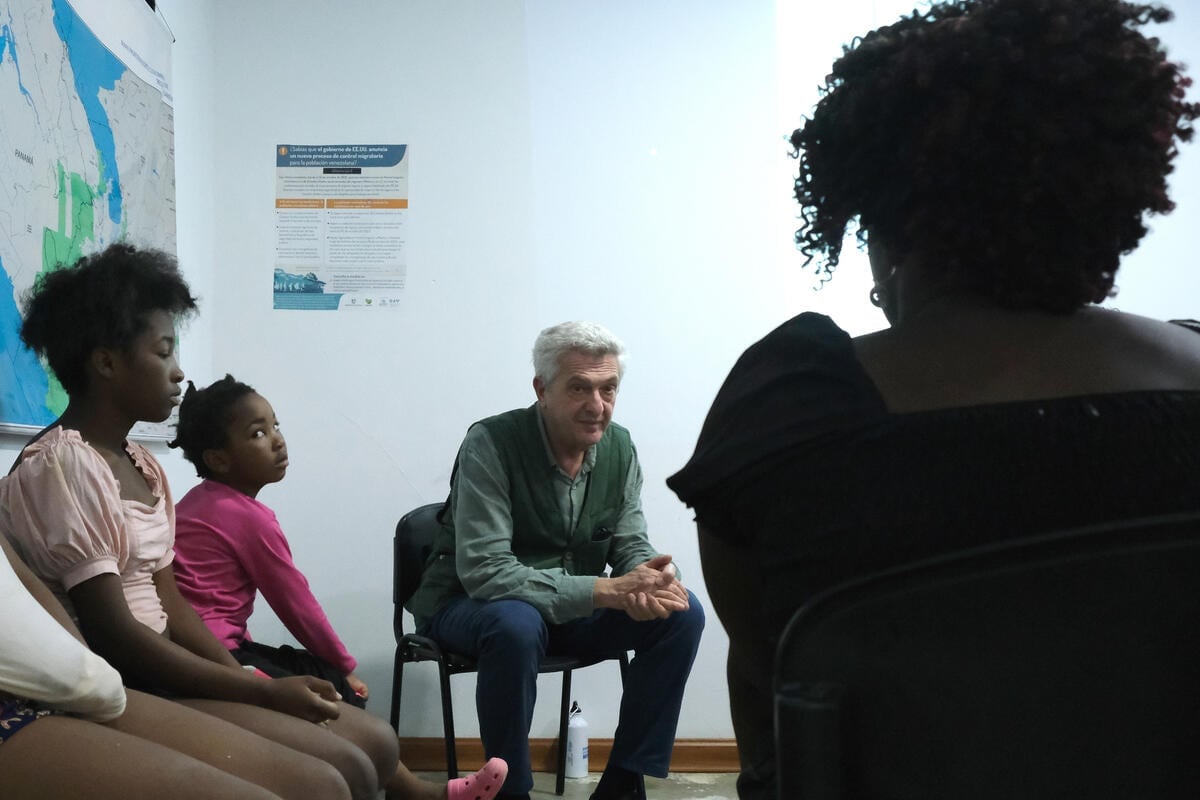UNHCR banks on breaking blockade on Colombian river
UNHCR banks on breaking blockade on Colombian river
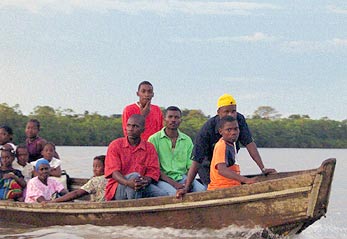
QUIBDÓ, Colombia, Nov 26 (UNHCR) - An expedition sponsored by the UN refugee agency is helping to keep hope afloat on the conflict-clogged Atrato river that runs through western Colombia.
For the last seven years, hundreds of thousands of Colombians living along the Atrato river have been subject to an economic blockade by guerrilla and paramilitary groups seeking to prevent essential goods from reaching their enemies. The 60 ships that used to ply the river every day with goods for local communities are long gone, leaving the villagers to provide for themselves.
But recently, a convoy of 13 ships coursed through the neglected waterway in an attempt to break the blockade. From November 16 to 21, more than 200 humanitarian workers, journalists and members of the local community sailed 500 km from Quibdó, capital of Chocó province, to Turbo, in the heart of Colombia's "banana zone" in Antioquia province - a stretch that houses some 100,000 people, mostly indigenous and Afro-Colombians.
The "Atratiando" voyage - organised by the Catholic church, the indigenous and Afro-Colombian communities, and sponsored by UNHCR and PCS, a group of European non-governmental organisations - brought basic foodstuff for the villagers, and more importantly, visibility for these isolated communities, who welcomed the visitors with music, flags and smiles.
Along the way, the expedition stopped in Tangui, home of "Tangui Chirimia", a renowned group whose music buoyed the whole voyage. The whole town of Tangui - numbering a few hundred fishermen who are unable to sell their catch because of the blockade - worked to prepare breakfast for the visitors. They also commemorated the death of one of their peers killed recently by an armed group to warn the community about the price of non-collaboration. The dead man's family earlier received $800 in assistance from the town's poor but generous residents.
It is this solidarity that keeps the Atrato river alive after years of armed conflict killed more than 800 people between 1996 and 2002, and forced over 25,000 to flee their homes in fear, according to the local church.
Some people are tempted to leave due to the worsening living conditions. "You can't trade what you produce beyond your own town. The only way to survive is fishing, but the fishes have also become scarce in recent years," said Josama, a craftsman in Buchado, another riverside town. "The only reason I stay is because this is the one place where I feel at home."
Even before the conflict and the ensuing blockade, most places in the Atrato Basin had no drinking water or a sanitary system. Children from a town like Buchado have to travel to Quibdó if they want to attend secondary school.
"These people are used to lacking many things like clean water, good clothes, a sewerage system, education," said a young priest working with these communities. "But they are also used to singing their music, trading their products between communities and, above all, living in freedom."
He added, "I've never known the towns' women to suffer from insomnia because of negligence of the State. Now they are suffering from insomnia because the armed groups are killing people and forcing the communities to pick up the dead bodies. They have lost something more important than clean water, and it is peace."
The "Atratiando" expedition, which ended last Friday, gave visibility to the people struggling to keep the river alive. It showed the enormous strength of the association of Afro-Colombian communities (ACIA) and its counterpart among indigenous groups (OREWA), who were able to mobilise thousands of people in the riverside towns to welcome the convoy.
It also unveiled the Catholic church's work to promote teenagers' associations and musical groups, giving purpose to the lives of a generation that is growing up in the midst of war.
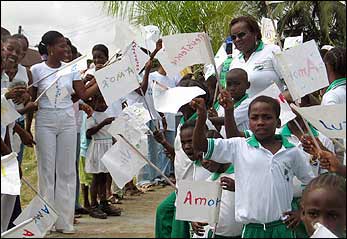
The Atrato river has not surrendered to war. As part of the activities of "Atratiando", humanitarian centres were inaugurated in the towns of Tagachi, Buchado, Isla de los Rojas and Lomas de Bojayá to shelter resisting populations in case of an emergency. UNHCR also inaugurated a human rights centre in Beté in the municipality of Middle Atrato as a place where the population can learn about and exercise their rights.
"We are still fearful of the armed groups, they are around us and they can harm us," said Father Antun Ramos in Bojayá, where 119 people died following a grenade attack on a church last year. "But we are more organised now, and it makes us stronger. We are ready to confront anyone in order to live our lives here."
Bojayá is already starting to rebuild itself. Jimmy Chaverra, a former ambulance driver who became president of the 2 May Committee for the Reconstruction of Bojayá, showed UNHCR staff the scale model of houses for the new town. Financed by the UN refugee agency, this committee has organised the community to give it a strong voice, a voice needed to steer the Atrato river's forgotten communities out of oblivion.


